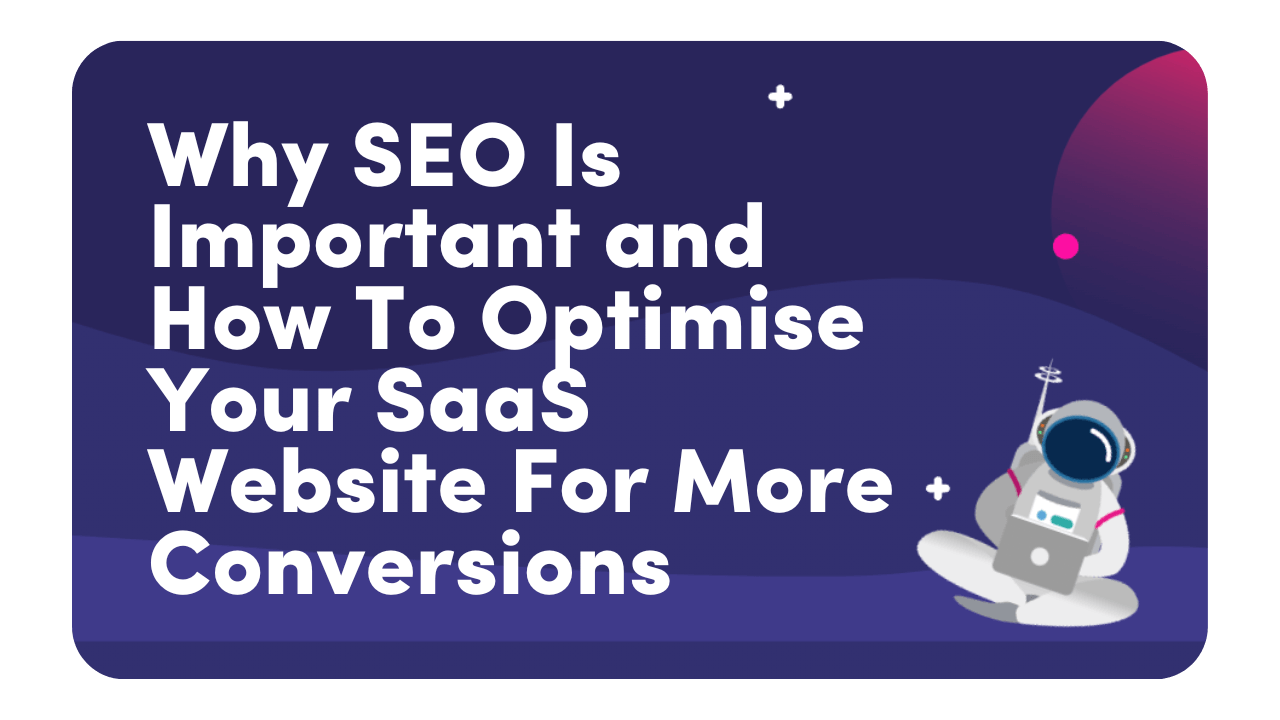Free SaaS marketing strategies & campaign ideas in your inbox every Thursday
Receive actionable SaaS marketing ideas to implement in your business
Insights, Marketing, Web

Whether you’re in the process of designing your first SaaS website, redesigning the one you have, or are working with a marketing partner, you’ve likely come across the term Search Engine Optimisation or SEO as it’s commonly known.
So, what exactly is SEO, and why is it important for your SaaS business? In short, SEO is the process of “optimising” your SaaS website so that your target audience can easily find you on search engines like Google.
If you’d like to learn more about why optimising your SaaS website for SEO is so important and ways you can do so, just keep reading!
Let’s explore the most important reasons why you or your marketing partner needs to develop and implement a solid SEO strategy for your business.
According to BrightEdge, 68% of online experiences begin with a search engine.
So if you’re not appearing for relevant SaaS searches your target audience is making online, you’re losing a massive amount of visibility.
SEO helps get your brand in front of more people, building awareness and increasing your chances of landing SaaS customers.
More than 90% of people never click past the first page of Google’s search results, so the lower down your website pages appear, the less traffic you’ll get.
Seeing your SaaS brand appear on page 1 makes you appear more trustworthy and authoritative. This sense of credibility means that prospective customers will take less convincing to choose your SaaS solution over a website that appears on page 10.
In general, the more organic (free) traffic you get onto your website, the higher your conversions will be.
The beauty of SEO is that, unlike Google Ads, you don’t pay for every click on the organic results, which lowers your cost-per-conversion and increases profits.
Optimising your website works by following a set of SEO best practices that help pages on your SaaS website rank highly for the specific keywords your target audience is typing in. Let’s explore these best practices below:
All good SEO strategies for SaaS websites start with installing analytics software, like Google Analytics, to establish a baseline for your website traffic.
You’ll be able to measure what keywords you already rank for, what pages get the most traffic, how long people spend on each page, your bounce rate (people that leave without clicking to another page) and much more.
Using these insights, you can gain clarity on areas you need to improve and track these improvements throughout your ongoing SEO strategy implementation.
Using a free keyword planning tool, like Wordstream, start typing in keywords you want your website to rank for (like “SaaS accounting” or “cloud-based LMS”) and see what similar searches people make.
Your keyword research tool will then show you how often people search for a specific keyword per month, how competitive it is, and more.
Once you know what list of keywords you want to rank for on every page of your website, you can start optimising your website for those specific search terms.
One of the most crucial ways to optimise your website for SEO and achieve higher rankings is by creating high-quality, long-form content.
By answering questions that people type in the most with well-written, genuinely helpful blogs, you’ll show off your expertise, boost visibility, and get more people enquiring about your SaaS solution.
To help your website climb the search results, make sure you include target keywords in:
Don’t overdo it, though. You want to aim for between 0.5% – 2.5% keyword density within your body copy – otherwise, Google will penalise you for keyword stuffing!
Another key aspect of SEO is enhancing the usability of your SaaS website by following technical SEO best practices. Here are some of the key ones to follow:
Last but not least, try and secure as many links back to your SaaS website as you can. The more “backlinks” you have, the more Google will see you as an authority in the industry and “trust” your website.
You can get more backlinks by:
Now that you understand the importance of SEO, the benefits of implementing an SEO strategy for your SaaS business, and what the best practices are, it’s time to get going on optimising your website!
Begin by evaluating your website’s current performance, working on your keyword research, and go from there.
Do you need help crafting a winning SEO strategy but don’t have the time?
Let us do it for you! With rolling monthly price plans starting from just £3,000 per month, we join or become your dedicated SaaS marketing and web design partner, taking your online presence to sky-high success with smart automation, strategic digital marketing, and high-converting websites.
Get in touch with us today to get started.
Receive actionable SaaS marketing ideas to implement in your business
Email: info@rocket-saas.io






By Ryan James

